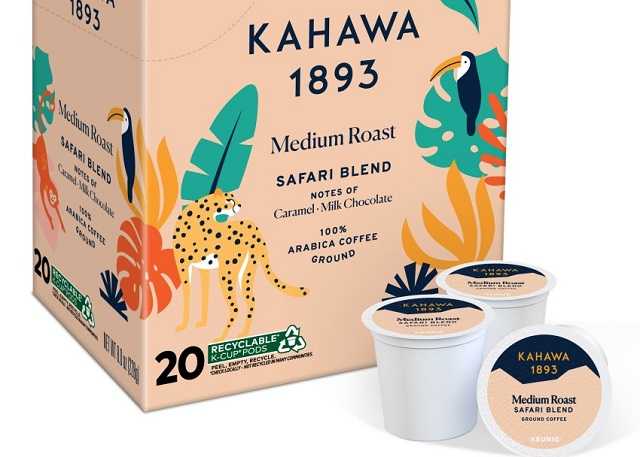NEW YORK, NY, USA – The first nationally distributed Black and woman-owned premium coffee brand is now available to 40 million U.S. households with a Keurig brewer: Kahawa 1893 Coffee will launch two of its signature African coffee blends, Safari and Serengeti, to the Keurig® brewing system this summer, marking the first time the premium coffee brand will be available in the K-Cup pod format.
Kahawa 1893 Coffee was founded in 2017 by Margaret Nyamumbo, a third-generation Kenyan coffee farmer, to source coffee directly from African women who often aren’t fairly compensated for their labor. Since then, Nyamumbo has broken representation barriers in the coffee industry and has been recognized as the first nationally distributed premium coffee brand owned by a Black woman.
In 2023 Nyamumbo appeared on season 13 of ABC’s multi-Emmy Award-winning series, “Shark Tank,” and secured an investment from Emma Grede, the investor and entrepreneur behind brands such as Good American and SKIMS.
“Since airing on Shark Tank over a year ago, our customers have overwhelmingly requested us to offer our best-selling coffees in a convenient format and specifically the K-Cup® pods,” said Margaret Nyamumbo, CEO, Kahawa 1893 Coffee. “We are excited to partner with Keurig to share our delicious, sustainably sourced African coffees at the touch of a button.”
Patrick Minogue, President of U.S. Coffee, Keurig, said, “To know Margaret is to deeply understand that her passion for coffee goes well beyond the cup. We are inspired by the tenets of her brand mission to empower women in her native Kenya and pleased to widely introduce the brand to the Keurig consumer.”
Kahawa 1893 K-Cup pods will be offered in two varieties:
- Safari Blend: a medium roast with fruit undertones that characterize African coffees. Tasting notes include Milk chocolate and Caramel.
- Serengeti Blend: a full-bodied dark roast coffee. Tasting notes include Dark Chocolate and Molasses.
Kahawa 1893’s brand mission of empowering women is supported by a tipping program where customers can tip farmers directly. The tips are used by the women to invest in projects to improve their communities.


















